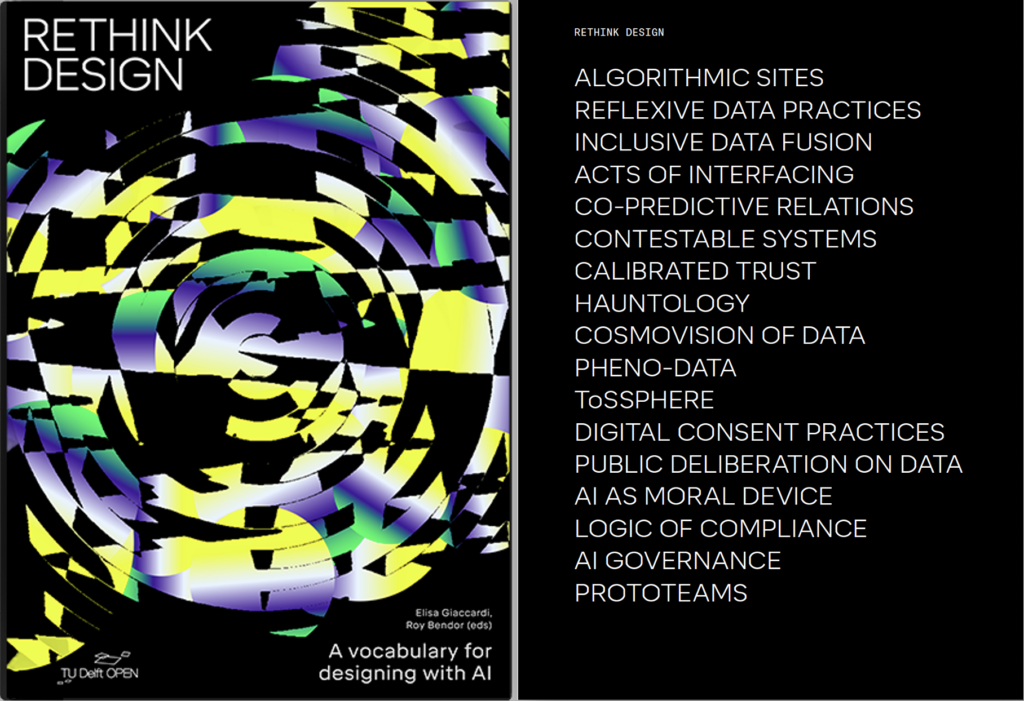Over the last year I have served as project lead for DCODE, a Horizon 2020 Marie Sklodowska-Curie Innovative Training Network (ITN) that includes 15 PhD students across 7 European universities with stakeholders from industry, government, and civil society.
Today we published one of the most important project outcomes: an edited book that serves as a lexicon for addressing the multiple dimensions and entanglements of AI with other social and technical phenomena. From the publisher:
Rethink Design – A vocabulary for designing with AI addresses the question of how designers can engage with AI. The book presents 17 terms that were developed through inquiries into, and explorations of, designing and living with massively interconnected, potentially autonomous, and seemingly intelligent technologies. Unlike older technologies, these do not wait for human action but engage the world proactively, making decisions, communicating, and sharing data at speeds and scales that challenge comprehension. As such they destabilise and undermine boundaries, often with disregard to moral imperatives, and reconfigure not only the material world but also our relationships with it, with each other, and with ourselves.
The terms are organised into 5 sections, each oriented by a key question: How will we craft inclusive human-algorithm relations?, How will we design AI systems that benefit people and the planet?, How will we create equitable socio-economic models in the digital society?, How will we enable public deliberation on data and algorithms?, and How will we prototype responsible data-driven design practices?
Taken together the terms provide a sense-making instrument, a map for navigating flexibly a complex, emergent terrain. Reflecting and responding to the dynamism of the field, the book aims to be agile and accessible, offering not the final word but a brief, critical and creative introduction – a set of complementary vistas, entry points, and insights.
The book is published open access and is available here.

